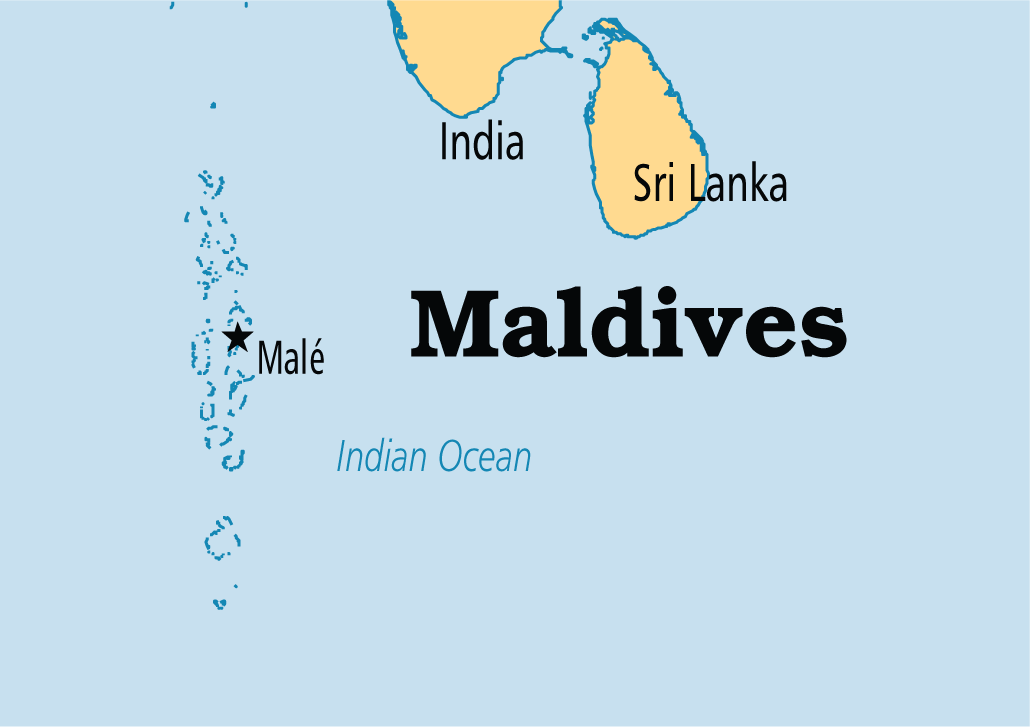Visit of Home Minister of Maldives | 22 Feb 2020
Why in News
The Home Minister of Maldives, Mr. Sheikh Imran Abdulla, met Indian Home Minister on 21st February, 2020.
Key Points
- During the meeting, both the ministers discussed issues of mutual interest in the area of security and law enforcement cooperation.
- The Ministers welcomed the expansion of bilateral cooperation between India and Maldives in diverse fields including policing and law enforcement, counter-terrorism, counter-radicalization, organized crime, drug trafficking and capacity building.
- The Directorate of Enforcement will assist Maldives in setting up a probe agency like itself and guide the island nation on raising a Prevention of Money Laundering Act, 2002 (PMLA) infrastructure.
- The Directorate of Enforcement is a multi disciplinary organization mandated with the task of enforcing the provisions of two special fiscal laws – Foreign Exchange Management Act, 1999 (FEMA) and Prevention of Money Laundering Act, 2002 (PMLA). It is headquartered in New Delhi.
India-Maldives
- Significance of Maldives for India
- Maldives’ proximity to the west coast of India - Maldives is barely 70 nautical miles away from Minicoy -the southernmost island of Lakshadweep.
- Lakshadweep group is separated from Maldives by Eight Degree Channel.
- It is situated at the hub of commercial sea-lanes running through Indian Ocean. More than 97% of India’s international trade by volume and 75% by value passes through the region.
- Its potential to allow a third nation’s naval presence in the area.
- Since China’s naval expansion into the Indian Ocean , Maldives significance has steadily grown and now it’s at the heart of international geopolitics.
- Moreover, the Maldives is an important aspect of India’s ‘Neighbourhood First’ policy.
- ‘India First’ has been a stated policy of the Government of Maldives.
- Maldives is a member of the South Asian Association for Regional Cooperation (SAARC) and the South Asia Subregional Economic Cooperation (SASEC).
- There is a significant Indian diaspora in the Maldives. Innumerable Indians work across the hospitality, education, and health-care sectors of the Maldives economy.
- Maldives’ proximity to the west coast of India - Maldives is barely 70 nautical miles away from Minicoy -the southernmost island of Lakshadweep.
South Asia Subregional Economic Cooperation
- The South Asia Subregional Economic Cooperation (SASEC) Program, set up in 2001, brings together Bangladesh, Bhutan, India, the Maldives, Nepal, and Sri Lanka in a project-based partnership to promote regional prosperity by improving cross-border connectivity, boosting trade among member countries, and strengthening regional economic cooperation.
- The Asian Development Bank (ADB) serves as Secretariat to the SASEC Program.
- Relations Between the Two Countries
- History: India and Maldives share ethnic, linguistic, cultural, religious and commercial links. India was among the first to recognize Maldives after its independence in 1965 and later established its mission at Male in 1972.
- Defence: India provides the largest number of training opportunities for Maldivian National Defence Force (MNDF), meeting around 70% of their defence training requirements.
- ‘Ekuverin’ is a joint military exercise between India and Maldives.
- Disaster Management: The Government of India has provided large-scale assistance to Maldives in the aftermath of the 2004 Indian Ocean tsunami and during the 2014 Male water crisis.
- Trade and Tourism: India is Maldives’ 4th largest trade partner after UAE, China and Singapore. In 2018, India was the 5th largest source of tourist arrivals in Maldives.
- The Maldivian economy is heavily dependent on its tourism sector, which is the major source of foreign exchange earnings and government revenue.
- Operation Cactus: In 1988, in response to a request from the Maldives, India activated Operation Cactus to deploy its military and ensure regime continuity in Male.
